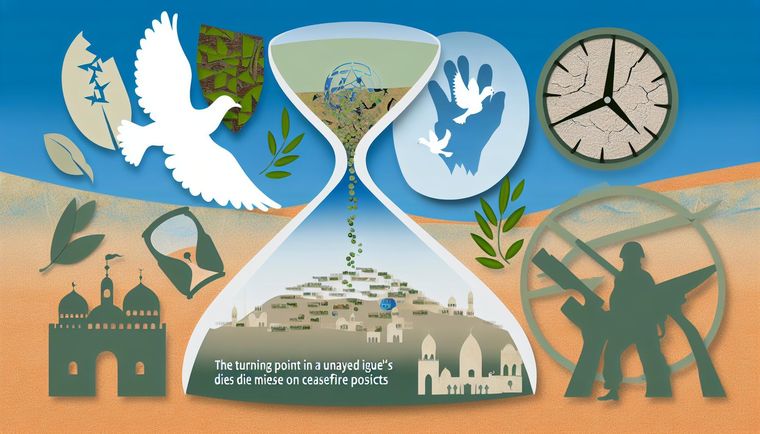Turning Point in Gaza Conflict: The Impact of Yahya Sinwar's Death on Ceasefire Prospects

In the wake of intensifying protests in Tel Aviv calling for the release of hostages, a significant development has emerged in the ongoing conflict between Israel and Hamas. The reported death of Yahya Sinwar, a key leader of Hamas, during an Israeli airstrike has opened new avenues for a potential ceasefire and hostage exchange. This assessment comes from Jacob Kaarsbo, a senior analyst and former head of analysis in the Defense Intelligence Service.
Kaarsbo emphasizes that Sinwar's death may help dismantle the barriers to resolution that have persisted throughout the conflict. Previously regarded as a staunch hardliner, Sinwar has been implicated as a principal architect behind the devastating attack on Israel on October 7 of last year, which has been classified as one of the most significant terrorist actions in recent history.
"With Sinwar gone, there may now be a chance to break the deadlock that had stifled negotiations for a ceasefire and hostage exchanges," Kaarsbo states. He notes that the geopolitical landscape could undergo a transformation, fostering an environment where dialogues can flourish more freely.
Kaarsbo argues that the current political atmosphere necessitates a response from Israeli Prime Minister Benjamin Netanyahu and his coalition partners. The pressure will mount on Netanyahu, who must navigate public sentiment demanding decisive action toward a resolution of the crisis. Failure to achieve a ceasefire or arrange a hostage exchange could result in significant political repercussions for the government.
As of now, save for the recent developments, the situation within Gaza appeared hopelessly stalled, with at least 101 Israeli hostages believed to be held by Hamas. Kaarsbo asserts that the removal of Sinwar’s influence may compel the ruling factions in Israel to reconsider their approach.
In retrospect, observers have deemed Sinwar's leadership role detrimental, particularly to the Palestinian populace. "He was not an asset for the people in Gaza; he was a classic terrorist leader entrenched in violence," Kaarsbo added.
The aftermath of Sinwar's death raises pivotal questions about future negotiations. Analysts will be observing how both Israel and Hamas will respond to the shifting dynamics. Will this new chapter in the Israel-Hamas conflict pave the way for a much-needed ceasefire?The protests in Tel Aviv capture the urgent demands of citizens clamoring for the immediate return of their loved ones, urging the Israeli government to prioritize lives over military objectives.
As the situation develops, the focus will remain on international involvement and regional actors who may play critical roles in mediating discussions. While hope for peace hangs in the balance, the recent events might signify the onset of a new phase in the quest for stability in the region.
Related Sources:
